JAMAICA | A. J. Nicholson's Excellent Book: “The Road Block: Jamaica’s Resistance to the Caribbean Court of Justice”
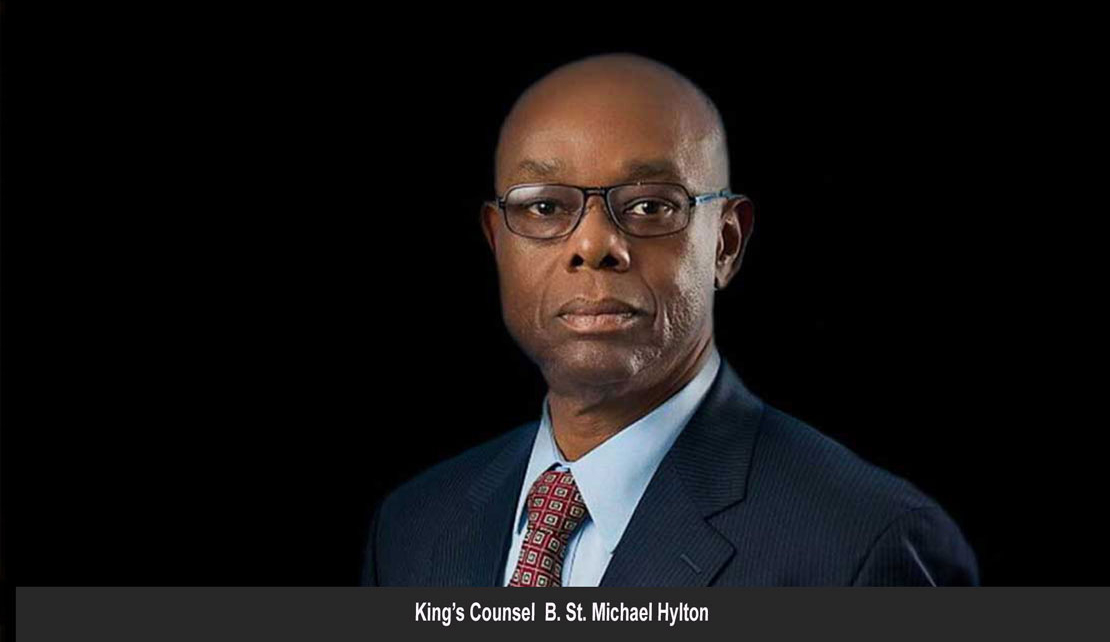
KINGSTON, Jamaica June 9, 2024 - We Caribbean people often criticize ourselves for not writing enough. This is a justifiable criticism. We allow others to write our stories, our history, from their perspectives. A. J. Nicholson’s new book, “The Road Block: Jamaica’s Resistance to the Caribbean Court of Justice”, is an excellent addition to the literature of our region.
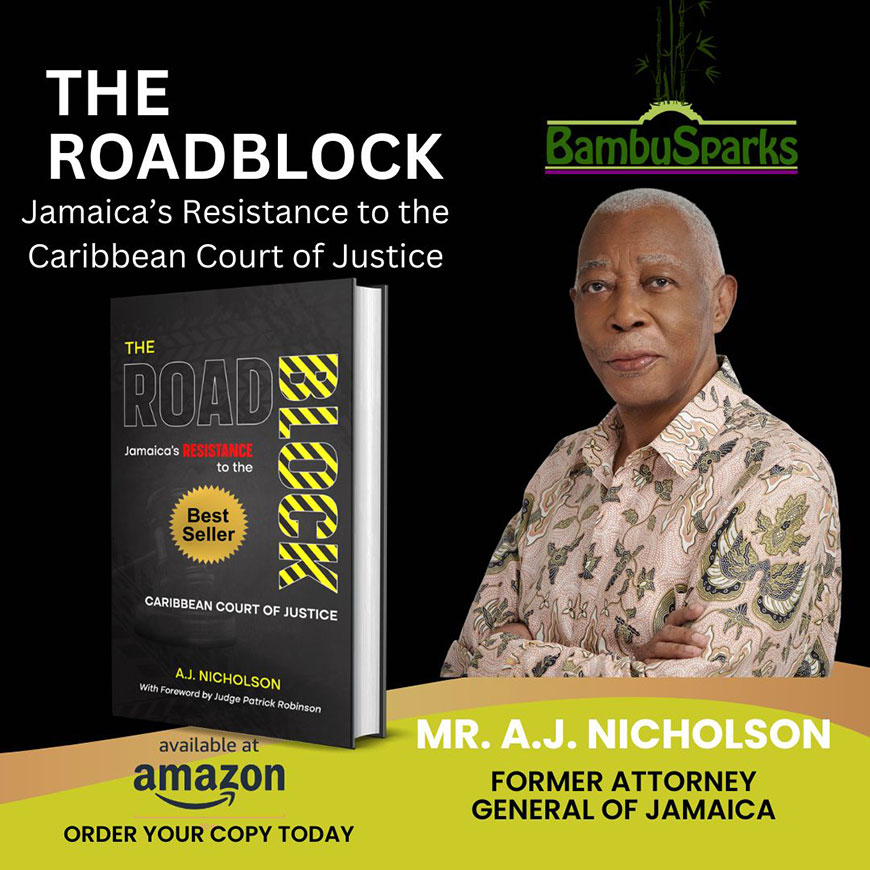 It is also very timely. Jamaicans are more aware than ever about the Caribbean Court of Justice and the calls for us to accede to its appellate jurisdiction.
It is also very timely. Jamaicans are more aware than ever about the Caribbean Court of Justice and the calls for us to accede to its appellate jurisdiction.
What most of us do not know, however, are the details of the journey that took us here – the small and large steps forward and the setbacks. It is an important story, and few are better placed to tell it than the former Attorney General.
Mr. Nicholson had a front seat to most of the relevant events over the last 3 decades; he has a unique insight into the motives and considerations behind those events, and he has brought to this book a writing style that is both engaging and insightful.
The book takes us through the former Attorney General’s personal journey, starting in the rural village of Rock River, in the parish of Clarendon.
The village received its name from the river that flowed through it, and when a commercial enterprise diverted the river’s flow, adversely affecting the lives and livelihoods of its residents, a teenage Nicholson understood for the first time, the importance of access to justice.
As he put it, he came to learn that “access to water and access to justice are both constituent parts of the lifeblood of human existence”.
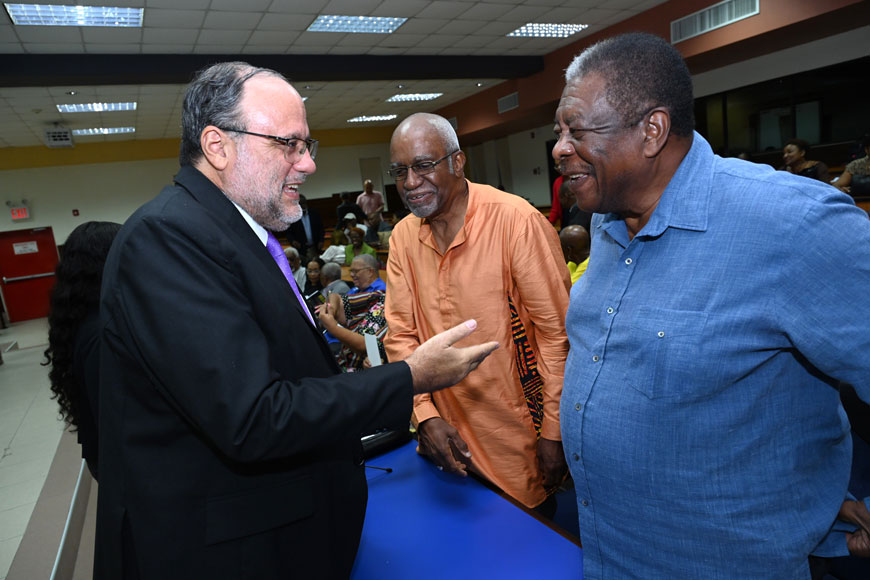
Some years later, after a distinguished career at the private bar, Mr Nicholson accepted appointment to the post where he would make his most significant contribution to Jamaica and the regional integration movement. In 1995, during the P.J. Patterson Administration, he was appointed Attorney General of Jamaica, a position he held until 2007, becoming the longest serving Attorney General in the history of independent Jamaica.
It was during his time as Attorney General that Mr. Nicholson was directly involved in the creation of the CCJ. He was the Deputy Chairman of the Caricom Preparatory Committee for the establishment of the court, and in that capacity, was engaged in the development of the Agreement and protocols that defined the court.
However, as the book so carefully explains, the court’s journey started many years before that. As early as 1901, an editorial in The Gleaner newspaper stated:
Thinking men are not adverse (sic) to a great final court of appeal for the empire, but they believe that the Judicial Committee has served its turn and is now out of joint with the conditions of the times…
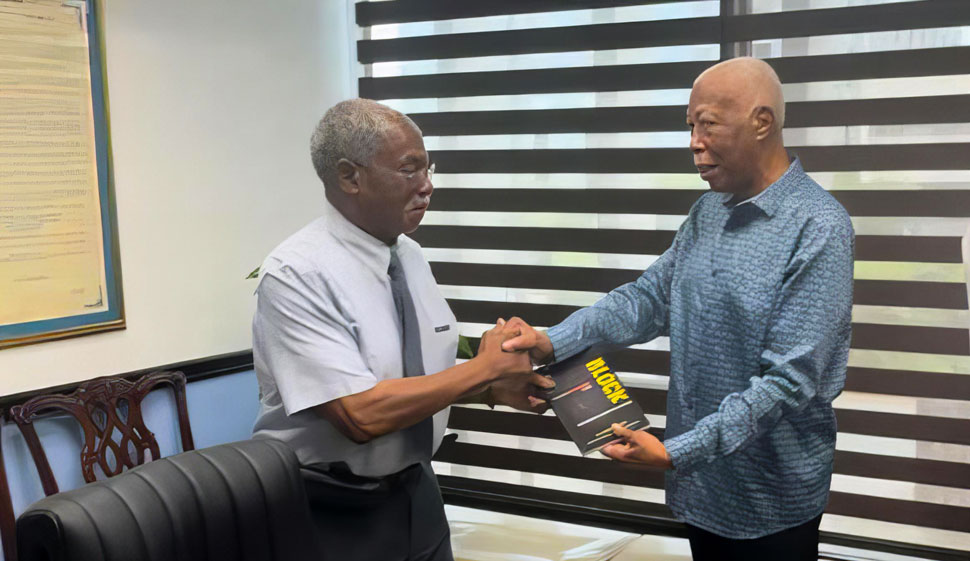
It is not to be wondered at therefore that colonial suitors and lawyers are beginning to question the expediency of the continuation of the Committee and this feeling is exaggerated by the cumbersome procedure in connection with the court, the delays that are encountered, the expense incurred, and the manner of delivering judgments.
In 1970, more than half a century ago, the Jamaican government took the lead in proposing a regional final court. At a Heads of Government Conference of Commonwealth Caribbean Countries in Kingston, the Jamaican delegation tabled a motion for the establishment of such a court and the Conference accepted it.
However, it appears there was no meaningful progress in the years that followed, and at the meeting of the same body in Antigua and Barbuda in 1988, the Jamaican delegation registered its desire for the speeding up of the initiative for the establishment of the regional final appellate court.
Mr. Nicholson points out in his book that in both 1970 and 1988, a Jamaica Labour Party Administration was in office.
There was then significant progress in the 1990s, and by the early 2000s the Agreement establishing the court and the protocols and rules that would determine how it would operate, had been settled. However, as the book recounts, by that time, the first and most enduring roadblock appeared. The Leader of the Opposition in the Jamaican Parliament, Most Honourable Edward Seaga, indicated his strong objection to Jamaica adopting the CCJ as its final appellate court, despite his declared insistence in support as Prime Minister a decade before.
The book also analyses the litigation and legislative failures that followed.
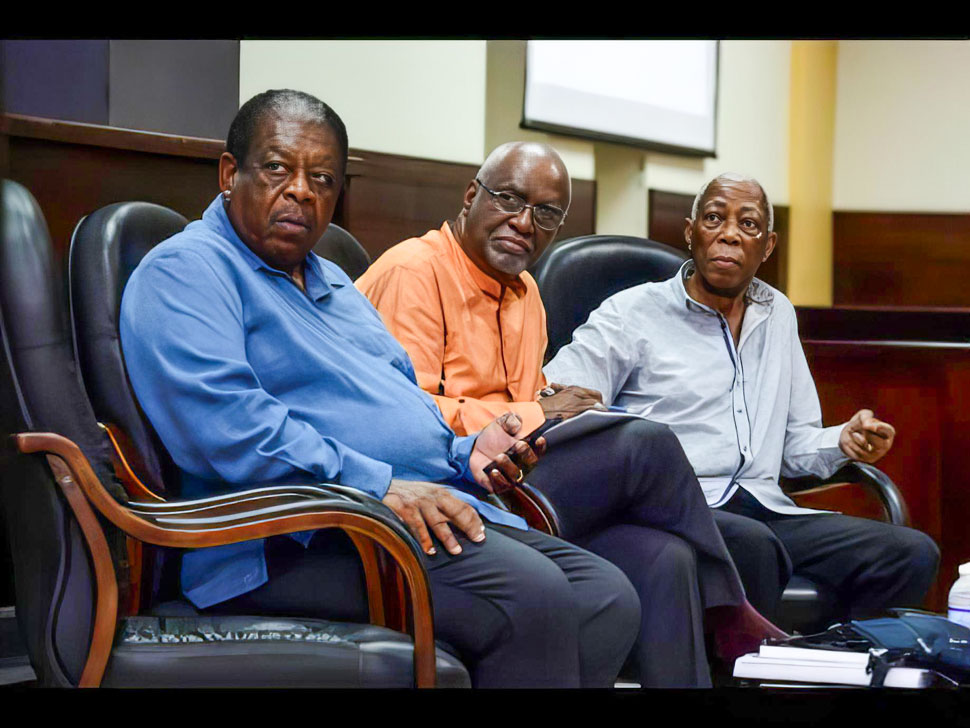
The book explores those issues as well, including significantly, the grave dangers that lurk in embarking on a referendum campaign exercise when one is not legally required. It emphasizes that, because of the irreparable damage that could be done to the vulnerable judicial system, the referendum route has been completely shunned by every country that has successfully made the transition away from the Privy Council.
Mr. Nicholson ends on a regretful note, bemoaning what he sees as a general public apathy concerning the initiative. He quotes former US Attorney General Eric Holder: “The arc of the moral universe bends toward justice only because people pull it towards justice. It does not bend on its own”. He remains hopeful that people will continue to pull.
“The Road Block: Jamaica’s Resistance to the Caribbean Court of Justice” is an excellent book; I strongly recommend it.
B. St. Michael Hylton, OJ, KC.
-30-
